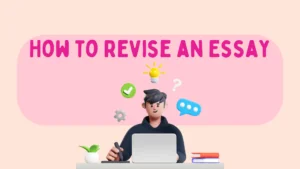How to write a winning argumentative essay conclusion? It is a question that bothers some students who want to create solid argumentative papers. There are no surprises: the whole goal of an argumentative essay is to present your message as a reinforced central thesis and convince the reader with the help of well-crafted arguments.

✅ AI Essay Writer ✅ AI Detector ✅ Plagchecker ✅ Paraphraser
✅ Summarizer ✅ Citation Generator
So, to create an excellent argumentative essay, you will need a clear message, a coherent structure, and a persuasive conclusion. There are several critical aspects of writing a successful last paragraph that each student should know.
How to Conclude an Argumentative Essay: Preparation and Planning
We always recommend writing the conclusion last. It may seem obvious, but many students prefer to skip body chapters and start with crafting easier parts. However, there is no such thing as “easier parts” when talking about argumentative essays. Such an approach can only radiate a destructive influence on the impression of your paper in general.
When it’s time to write the conclusion, it would be smart to start with outlining. Reread your essay, list the main points, and remind yourself of the central argument and the critical evidence: you should consider everything in the last paragraph to genuinely succeed. You have probably already stated your essay’s idea in the introduction, so now it’s time to reinstate it and let the reader consider your thesis again in light of new arguments. If you’ve done everything right, the reader will be convinced or at least ready to give a debate on the subject another shot. You must remember that your conclusion is not the place only to reinstate your main argument once more. It is also the last chance to catch the reader’s attention, leave a final impression, and make sure your paper stands out from the routine flaw. There are hacks and tricks to guarantee better performance of your argumentative essay conclusion paragraph, so continue reading if you want to learn more.

What You Should Avoid When Writing a Conclusion for Argumentative Essay?
There are six most common mistakes students make when writing final chapters for their argumentative papers. Focusing on avoiding each error from the list below can help you craft an almost perfect conclusion!
- Unclear language. To make your views clear and compelling, use precise language.
- Too many words. Conclude it briefly (no more than five sentences) to leave a lasting impression on the reader!
- No call-to-action. If you want your readers to really interact with your content, you should include a call to action and suggest potential implications.
- New arguments. The intelligent student will not bring any fresh points or proof in the essay’s conclusion. To make a lasting impact on the reader, conclude the essay by restating and bolstering your claims.
- Repetition. Unless necessary, refrain from reinstating details covered elsewhere in the body. Avoid repetition and, instead, provide a summary of the key arguments and important ideas.
- No essay’s purpose. Remember to reflect your general objective in the conclusion and align it with the essay’s purpose. Stay on topic, and don’t add anything that could weaken or complicate your argument.
Another thing you definitely want to eliminate in your conclusion and academic papers in general is poor grammar. Even the kindest professor will grade an essay poorly if it contains a lot of typos, spelling errors, and punctuation mistakes. Use our spelling and grammar checker to proofread your writing once more and receive some helpful suggestions.
Just one more proofread!
How to Write a Conclusion for an Argumentative Essay: What Your Verdict Must Do
Now, we know everything you must avoid in your essay’s last chapter. However, avoiding mistakes is only half of the job, and it is time to discuss things you definitely want to include. You should remember that your solid conclusion should aim to complete several goals: impress the reader, summarize your findings, and repeat the central thesis.
📌 Summarize the main points.
To start, make a brief summary of your essay’s main points and supporting evidence. Provide an overview of the paper’s key points.
📚 Restate your thesis statement.
Reestablishing your thesis statement in a slightly different way will help to reinforce your main argument. In your conclusion, restate your position and make sure it fits in with the rest of your essay.
🔖 Highlight how important your point is.
Outline wider consequences. Justify your essay’s purpose by describing how it advances the discussion or provides fresh insight into the subject.
💫 Offer a call-to-action.
Inspire your audience to keep thinking about or doing something about the subject. You can offer possible answers, recommend additional studies, or even ask readers to think about the argument’s repercussions. In addition to providing a satisfying conclusion to your essay, this stage also invites readers to think about the topic further.
💗 Leave an impression.
Add striking imagery and provocative words that touch readers’ hearts, drawing inspiration from the strength of literature and creative writing. Your conclusion needs to be both memorable and compelling.
The Bottom Line: How to End an Argumentative Essay
Every essay needs a decent ending, and your essay is no exception! Take your time to craft a well-written and compelling conclusion, which can positively influence your academic papers’ overall performance. Some students have already learned their lesson: their grades improve when they dedicate more time to creating a well-researched introduction.
FAQ
Follow us on Reddit for more insights and updates.





Comments (0)
Welcome to A*Help comments!
We’re all about debate and discussion at A*Help.
We value the diverse opinions of users, so you may find points of view that you don’t agree with. And that’s cool. However, there are certain things we’re not OK with: attempts to manipulate our data in any way, for example, or the posting of discriminative, offensive, hateful, or disparaging material.